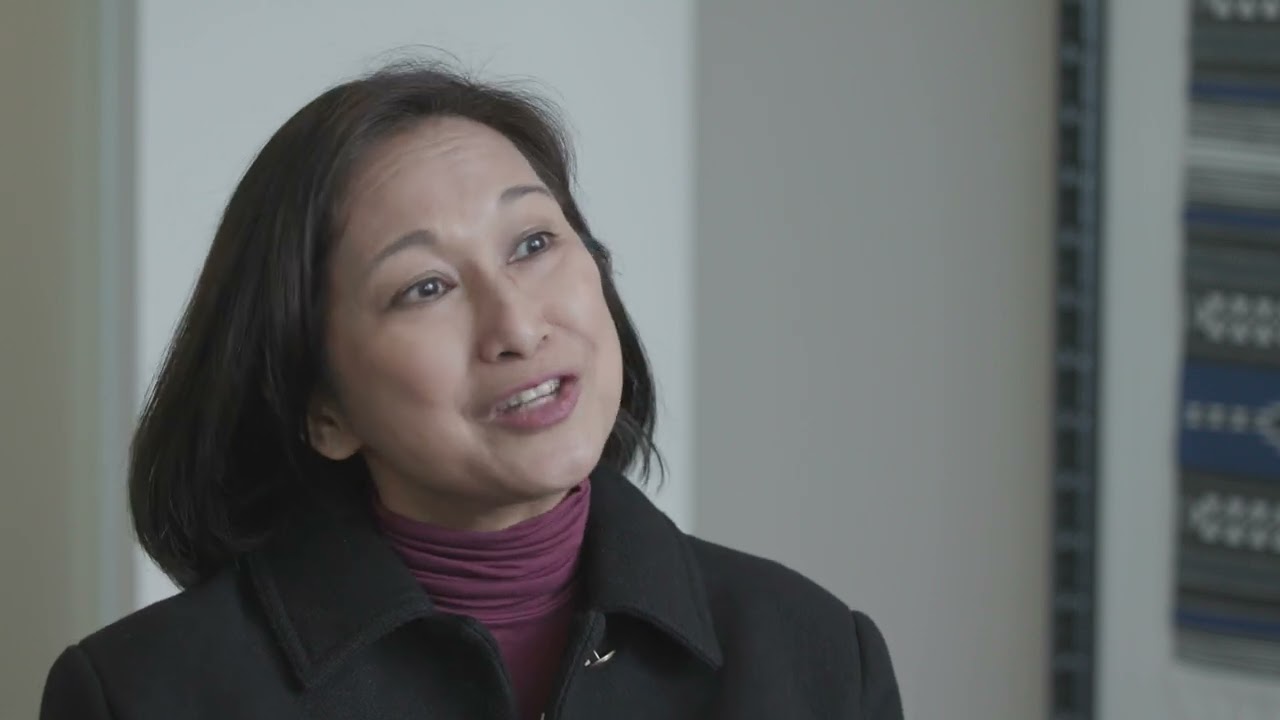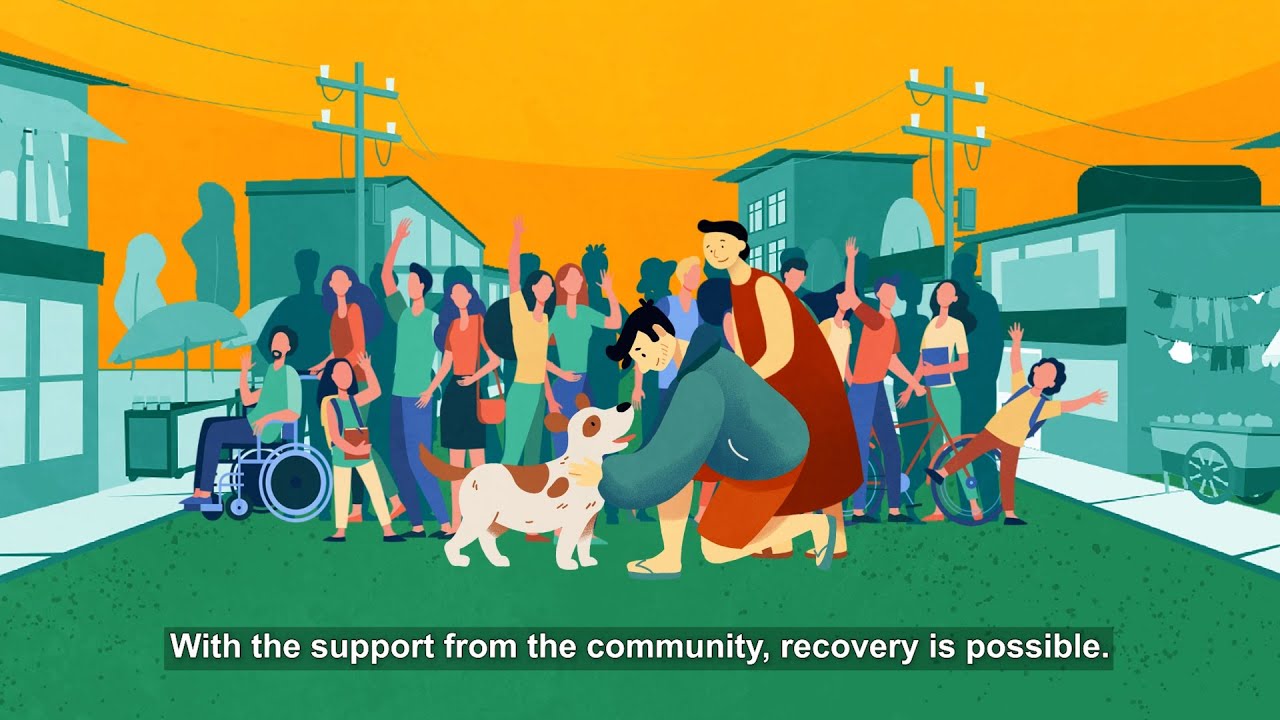A community facilitator from Lapu-Lapu City, a partner site of the USAID RenewHealth Project, shows a flip chart explaining a key tool, the General Intervention for Health and Wellbeing Awareness, which enables facilitators to teach substance abuse clients life skills. Photo credit: Jezler Garcesa
USAID RenewHealth – Expanding Access to Community-Based Drug Rehabilitation in the Philippines
The Challenge
Approximately 1.8 million people in the Philippines use drugs, according to a survey by the Philippine Dangerous Drugs Board (DDB). The Philippine government believes this number is significantly higher.
In 2016, the government launched a campaign against illegal drugs and 1.6 million people ‘surrendered’ to government authorities to avoid mandatory capture. The DDB declared that 95 percent of voluntary users who surrendered would be treated in communities. However, to date, only 15 percent of individuals who have responded to the government’s call on anti-illegal drugs campaign have received appropriate treatment interventions.
Overview and Objectives
In response, URC implemented USAID RenewHealth, a five-year project that promoted social integration and increased the accessibility of drug treatment and rehabilitation within the community.
Community-Based Drug Rehabilitation (CBDR) is an integrated model for helping persons who use drugs (PWUDs) with low to mild severity of use. It includes screening, treatment, recovery and family support, and aftercare and reintegration. RenewHealth’s goal is to help PWUDs, people in recovery, and their families obtain access to informal care self-help or community-based rehabilitation and recovery support to reduce or prevent drug dependence.
In partnership with Philippine government agencies – including the Department of Health (DOH), Dangerous Drugs Board (DDB), Department of the Interior and Local Government (DILG), Department of Social Welfare and Development (DSWD), Bureau of Jail Management and Penology (BJMP), and local government units (LGUs) – RenewHealth has begun several key activities:
- Improving healthy behaviors of PWUDs, their families, and communities by providing technical support in the creation of evidence-informed and culturally-appropriate social and behavior change and community-based drug rehabilitation interventions;
- Fortifying the quality of patient-centered and compassionate CBDR by providing evidence-based tools or interventions and build local capacities to implement CBDR services, as well as build a cadre of trainers and coaches, and culturally adapt tools and treatment interventions and materials; and
- Strengthen policies and systems for sustainable CBDR by advocating for an enabling environment and contributing to the development of national and local policies to support the delivery of CBDR. This effort also seeks to help strengthen the ability of Philippine government institutions and the Anti-Drug Abuse Councils to deliver CBDR services.
To sustain all these efforts, in May 2023 USAID forged a partnership with the DILG to ensure that all local government units in the Philippines can access all the evidence-based interventions and communication materials that will enable PWUDs, people in recovery, and their families obtain access community-based rehabilitation and recovery support.
Achievements
USAID RenewHealth was selected as one of three winners (out of over 100 submissions) for the 2023 USAID Health Systems Strengthening Case Competition. RenewHealth’s winning entry – Institutionalizing Community-Based Drug Rehabilitation in Inter-local Health Zones in Leyte Province – explains how a partnership involving RenewHealth and eight municipalities expanded access to CBDR and community-based mental health.
USAID RenewHealth is also proud of the following achievements:
- Reduced stigma and improved help-seeking behavior by reaching more than 787,000 people – including 103,258 PWUDs – from more than 20 priority LGUs with USG-supported social and behavior change communications messages and capacity-building activities.
- In partnership with the DOH, created the Lusog-Isip mobile app – the for mental health and self-care for Filipinos – and Lusog-Isip online, a web version with short courses to improve one’s mental health and wellbeing with a directory of mental health and psychosocial support service providers. In additional, RenewHealth developed Lusog-Isip Kabataan Education (LIKE), a psychoeducation module for schools and workplaces to help care for one’s mental health and prevent substance use. There are more than 11,700 Lusog-Isip users;
- Helped the DOH develop the screening, brief intervention, and referral to treatment (SBIRT) toolkit, now the official screening tool by level of drug dependence. An online version (E-SBIRT) was launched by the DOH Academy to ensure continuity of training during the pandemic. As of September 2022, the project successfully trained 20 service providers on E-SBIRT.
- Developed the General Intervention for Health and Wellbeing Awareness intervention for low-risk users to ensure evidence-informed and appropriate treatments. Partnered with Psychological Association of the Philippines in developing the Katatagan (Resilience), Kalusugan (Health), Damayan ng Komunidad (Solidarity with the Community), or KKDK, for moderate-risk users and for Persons Deprived of Liberty (KKDK-PDL). KKDK was recognized by the DDB as a model treatment for CBDR. The BJMP has adopted KKDK PDL as a pre-release program.
- Collaborated with the DSWD to develop an aftercare and reintegration program for recovering users, resulting in 235 key personnel and social workers trained on both aftercare and case management programs.
- Created a CBDR Portal that houses a learning management system and CBDR resources for service providers.
- Trained more than 3,100 service providers in CBDR treatment interventions through online and in person instruction. As a result, more than 46,473 clients have been enrolled in appropriate CBDR treatment interventions, with more than 20,364 completing treatment.
- Trained 7,882 people in CBDR to institutionalize policies and systems for sustainable CBDR service delivery.
- Developed the Barangay Anti-Drug Abuse Council (BADAC) Aksyon! program to bolster local capacity to provide CBDR services to PWUDs, with 1,030 BADAC representatives trained.
- Advocated for evidence-informed and compassionate CBDR at an in-person conference on the success of CBDR held in September 2022 with more than 4,000 participants.
News
- Study Reveals Mental Health Impact of Healthcare Workers’ Stigma Toward Drug Users in the Philippines
- Being the Changemaker: Helping Filipinos Recover from Substance Use
- RenewHealth Selected as a Winner of the 2023 USAID Health Systems Strengthening Case Competition
- Community-Based Drug Rehabilitation in the Philippines Proving Successful and Cost-Effective
- Freedom from Drug Use After Incarceration: A Second Chance
- Partnership in the Philippines Helps Small Municipality Integrate Community-Based Drug Rehabilitation into Health Services
- Mental Health on the Move in the Philippines – Meet the Lusog-Isip App
- The Impact of Community-Based Drug Rehabilitation in the Philippines
- Carmen’s Journey: Community-Based Drug Rehabilitation in the Philippines
- Family Support Crucial in Community-based Drug Rehabilitation, Philippines

